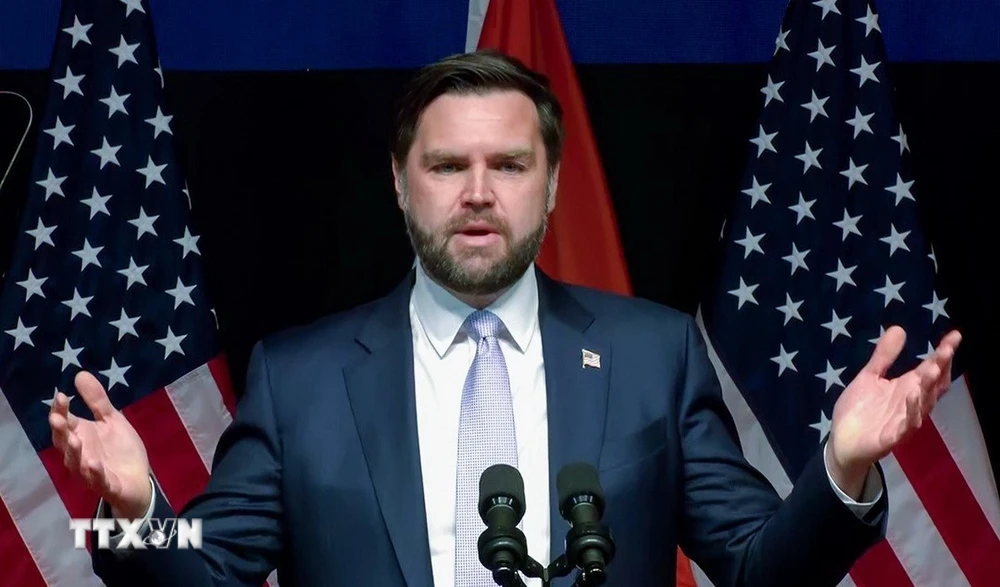In a commencement address at the U.S. Naval Academy on May 23, 2025, Vice President JD Vance declared that the era of uncontested American global dominance has concluded. He emphasized that rivals like China and Russia now challenge U.S. power across key domains, including military, economic, and technological spheres. Vance’s remarks underscore a significant shift in U.S. foreign policy under the Trump administration, moving towards a more selective and strategic approach to international engagement.
Speaking to graduates at the Naval Academy in Annapolis, Maryland, Vance said that US leaders had assumed after the Cold War that “American primacy” was assured. “Nor did we believe any foreign nation could rise to compete with the United States of America,” he stated.
The vice president warned that the global landscape has shifted. “The era of uncontested US dominance is over. Today we face serious threats in China, Russia, and other nations determined to beat us in every single domain – from spectrum to lower Earth orbit, to our supply chains and even our communication infrastructure,” he said.
During the post-Cold War period, Washington began focusing on “soft power” and “meddling in foreign country affairs,” even when they had “very little to do with core American interests,” Vance said, adding that the administration of President Donald Trump would be ending this “decades-old approach to foreign policy.”
Washington now aims to put an end to “undefined missions” and “open-ended conflicts,” he said.
Vance highlighted the necessity for the United States to preserve its technological superiority in response to emerging threats. He pointed to the Trump administration’s recent military action against Houthi rebels, which resulted in a ceasefire, as an example of a careful and decisive use of military force. This approach contrasts with previous administrations that engaged in prolonged military interventions. Vance also criticized past foreign policy strategies that prioritized nation-building over national security.
Reflecting President Trump’s isolationist stance, Vance reaffirmed the need for allies to share defense responsibilities. He highlighted the administration’s initiative to build the $175 billion “Golden Dome” missile defense system as a testament to its commitment to robust defense spending while aiming for more strategically selective military involvement.
This shift in U.S. foreign policy has significant implications for global security dynamics. As China and Russia expand their influence, the United States faces the challenge of adapting its strategies to maintain its leadership role on the world stage. Vance’s acknowledgment of the end of uncontested U.S. dominance signals a new era of international relations, where competition and collaboration will define the future of global power structures.
